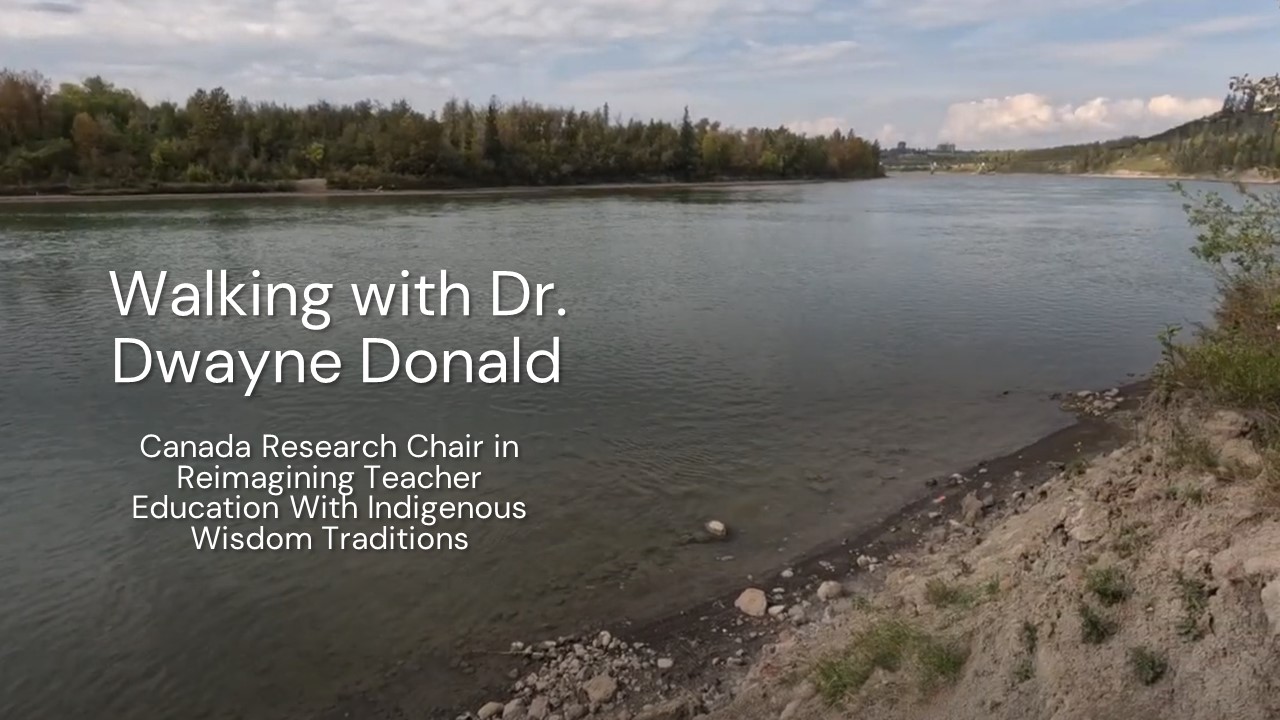So much of First Nations, Inuit, and Métis traditions and teachings revolve around connecting to, respecting, and honouring the land, the water, plants, and animals. Indigenous worldview centres on the idea that everything is related, and that we are all connected.
That’s why, as part of our planning for National Day for Truth and Reconciliation on September 30, OACAS engaged Dr. Dwayne Donald, Canada Research Chair in Reimagining Teacher Education With Indigenous Wisdom Traditions, to take us on a walk with him to learn about Indigenous wisdom, truth and reconciliation, and how the places we live can unite us.
Dr. Donald is a descendent of the amiskwaciwiyiniwak (Beaver Hills people) and the Papaschase Cree and works as a professor in the Faculty of Education at the University of Alberta. His work focuses on the ways that Indigenous wisdom traditions can expand and enhance conventional understandings of curriculum and pedagogy. He uses walking as a form of healing. Dr. Donald shares that walking can help us to reconceptualize Indigenous-Canadian relations on more ethical terms. He frames walking as a life practice that can help us to think differently about who we are and how we relate to one another. “In my experience, the emergence of a new story can be facilitated through the life practice of walking.”
We are inviting our staff, our members, and all our partners and stakeholders across the province to listen to Dr. Donald’s teachings and to take a walk this September 30 to honour your commitment to learning and unlearning, to reconciliation, and to being a better steward of our shared land.
“You need to pay attention to where you are…to the wisdom that’s existed in your place for a really long time and spend some time thinking about how that wisdom can guide you in the work you do.”
